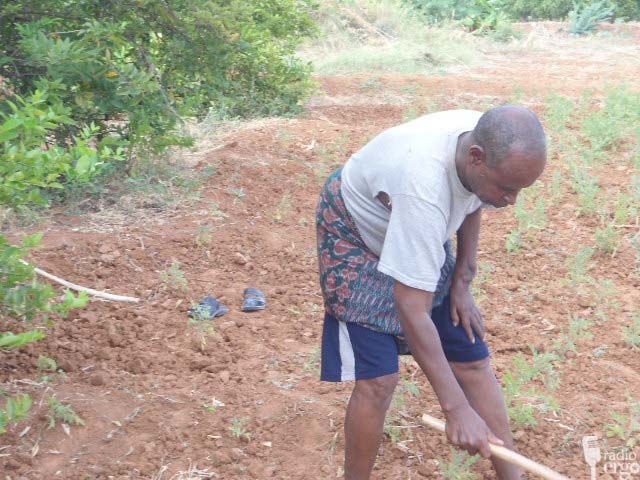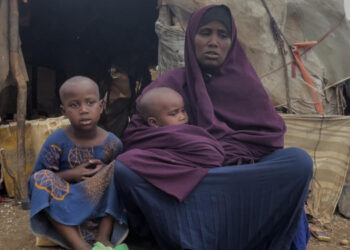(ERGO ) – A broken borehole motor has triggered a severe water crisis for hundreds of displaced families and pastoralists in Hoosingow in southern Somalia’s Lower Juba region.
The borehole, which served over 600 families, broke down on 20 July leaving the community in distress after a period of poor rainfall.
For Fadumo Dahir Omar, a displaced mother of eight, life in Uusle camp revolves around her eight kilometre walk each morning to fetch a 10-litre container of water from a seasonal pool that is rapidly drying up.
“The water has been cut off since the motor broke down. The children haven’t bathed and there is nothing to cook with. The children’s clothes are dirty and just piled up outside. So, this is the problem we have here. We are really upset and very worried about it,” she said.
The water she fetches from the pool is barely enough for their needs and also wears her out carrying it. The water is also not clean.
“The water is green and has changed colour and taste. It’s hard carrying it on my back and my legs hurt. Every night, my whole body aches. We are suffering so much from this.”
The long hours she spends fetching water, that can take up to 10 hours, leave her no time to collect firewood outside the town that she used to sell for an income. Her children try to help out but they don’t manage to collect much wood.
Life has become miserable for Fadumo, who was displaced from Bulo-haji village in 2022 due to conflict. The family’s hut was damaged by strong winds as well as she hasn’t the time or money to repair it.
Pastoralists in Hoosingow are also being severely affected by the water shortage. Ahmed Jibril Yusuf arrived in the area with his 50 camels and was shocked to find the well was broken.
“The camels have been without water for six days. When the well broke down, I was in the wilderness with the camels and had no idea about it. The pool is not enough for both people and animals. We have a big problem facing people in this area, and we are all struggling a lot,” he said.
Ahmed has no money to buy water and had relied on access to the free water from the well. Commercial water vendors told him they would charge five dollars just to supply enough water for one of his camels.
With his camels growing weaker, he is now considering moving to another well 40 kilometres away, although the animals are not in a good condition for such a trek.
“The people of this area are mostly pastoralists. We don’t have capacity to fix this mechanical problem. We can’t afford to buy a new motor or anything like that,” he said.
According to Mohamed Ali Abdi, the borehole manager, the borehole motor was given to the community in 2019 by Wajir South Development Association. He said they had been trying unsuccessfully to fix it motor for the past two weeks and had requested assistance from the Jubbaland administration.
“We need spare parts and mechanics to repair this one. Everyone is thirsty and we have not yet had anything to drink. This has severely affected people and animals in a way that has not been seen before. People are thirsty, and it is not a simple thirst; the animals are the same,” he said.
The breakdown of the well coincided with a poor Gu’ rainy season in the area causing a shortage of pasture and economic hardship.











